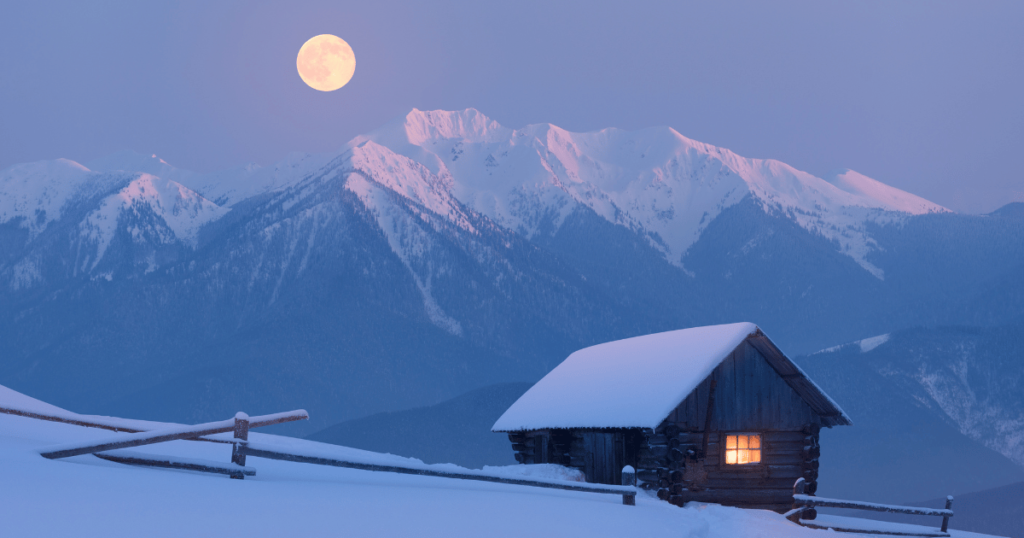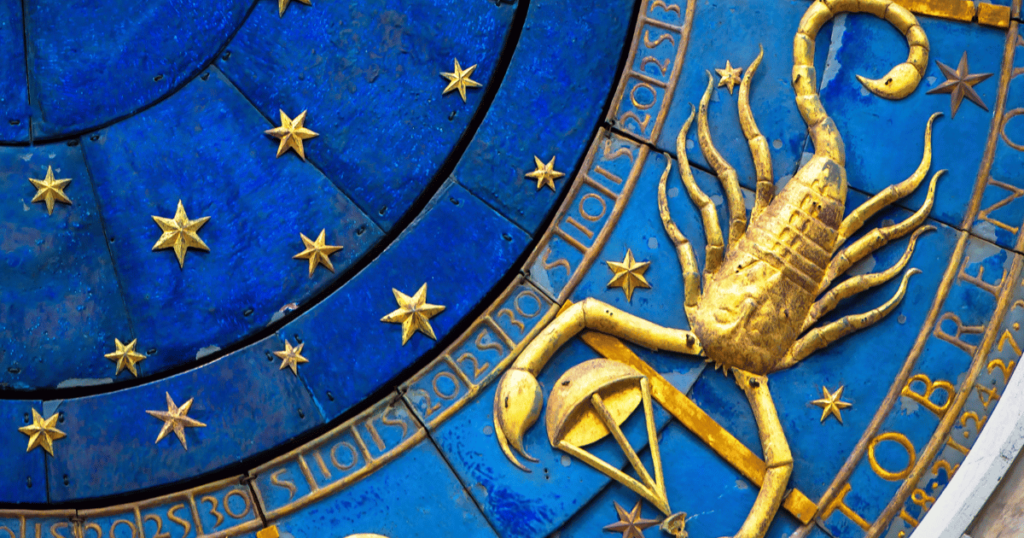
It was the first evening of our isolation under the thick snow blanket. It transformed the terrace outside the French doors; plant pots quickly topped with dazzling sponge hats. The log basket was packed, and each of the hand-cut logs was carefully measured to fit the stove mouth. Flames drummed out the sumptuous heat of this land filled with fire, an element in short supply in my native damp England. We breathed it in and poured a glass of local wine from the vineyards at the bottom of the slope and watched forests overrun with truffles and wild boar disappear from view. With one sip, the plumes and first stars of the winter sunset oozed into my heart and mind, and I suddenly had hope for us. We newly viewed each other in the candlelight radiating out from the centre of the low glass table between us, and I toasted, “Let the evening of our new life begin.”
We had no choice but to live the ways of our medieval ancestors until the snowdrifts melted. Yours were Jewish refugees fleeing from the Russian massacres. They were also Troubadours from Toulouse, a famous city in the High Pyrenees. We knew a little about them, but only a little. I came from Roman Catholic lace-makers from Seville and violin-playing gypsies from Andalusia in southern Spain. But you lit a cigarette, and the moment’s beauty snapped with the combusting of the modern art-deco lighter I had bought you. Tired of the nervous speculation, your eyes attracted mine, guiding them towards the garden doors behind me as I sat at your feet on cushions.
I looked round to see the stretched white belly of Judy, our cat, a snowy statue, as she reached for the door handle. Next to her, the tortoiseshell beauty of Tilda patiently widened her eyes at flakes falling on her head. And turning back to you, I caught a flicked image of the wicker basket you had presented them to me in as wobbling kittens. They were for my birthday in another era. I smiled, relieved that we were not completely alone.
As the sentimentality washed away, I set about detaching coriander leaves, our first hothouse crop, from their stems, a job that delighted me. As usual, you made vague comments about the tedious nature of this task and how you would not have the patience.
“—Remember the seeds we brought in brown paper bags on the epic drive from England, tiny perfect pale brown rounds with symmetrical ribs?”
You asked me why they meant so much to me, and touching your thigh, I said,
“—We’re like coriander. We must cherish its exquisite energy.”
You re-crossed your legs and picked up your book, refusing to accept such a poetic allusion.
Your body openly denied the ‘exquisiteness,’ detesting the word ‘cherish’ as you had told me so often. I absorbed myself in preparing spices for our dinner. At the same time, you stood up to let the cats in, adoring them more than usual as they rubbed your legs, picking up your glass for a refill without a further glance.
My memories of life on the plains became vague as I plucked off the curly leaves and loaded them into a flat drying basket. Our lives had been a race to earn and be successful, of grueling practice to be the most technically perfect, leaving little time for anything else. Here in the mountains, there was a slowing down of eye and ear, which could raise us to a more reflective level and a brighter hope of happiness. I was shocked that I was projecting the goal of joy into the future at some vague time. I know now that we had to be happy and here.
While you were absent, I stared into the orange fire window, reflecting on the happiest moments of our mountain days. We harvested things endlessly in calm arms and stout baskets, sorting and storing. Such simple activities brought me close to the earth and allowed my city heart to open its tight buds. An afternoon in full sun under the walnut trees collecting light brown nuts like planets, sorting them into ripe and unripe, their dryness beautiful to the fingertips. Wild cherries– shiny baubles of blood–picked in pairs, loping down from sturdy stems, were a joy. I peered into their shine because the locals insisted you could see your original face there. You observed me, and I was silent. You turned away.
We found watercress in the river just up from Long Island as the mountain snows first melted in the Otter Pool, which we both adored. It brought back poignant memories of the bluebell woods around your family house when we had it to ourselves and the beck that was full of it in Spring. We knew to reach down to the roots to cut it slightly above so the crop would flourish. Then, in the hot kitchen, you transformed it into a peppery soup and the crunch of salads, your heart a little lighter when chopping and stirring. Soup making was another of your wee-small hours’ activities when you were afraid to sleep. Still, you rarely enjoyed eating it, which usually indicated your anxiety level.
You took up your place again behind me, the wine glass perched on the glass table, the cigarette packet taken deftly in your fingers. I went on.
“But not all those incredible things about coriander matter to me most. Something deeper comes through the taste, something ancient and persuasive. It’s so fresh, such a meaningful taste, so full of sunshine.”
The evening book opened across your lap, and you responded to what I said by lifting your fluted glass to sip. You took the wine into your mouth, held it there for a few seconds, and then swallowed it with a curious noise. You stroked the nose of Judy sitting close to you, then tapped out another Camel cigarette and lit up your annoyance.
The living room was an illuminated ship in a cold, dark sea mist, each wave a human moment. As the light drained away behind the slopes and rooftops blurred by the blizzard outside, the blanket of medieval coldness was emphasized by the terra-cotta floor tiles chosen for an endless summer. Our eyes signaled:
“—I’ll do it,” I stood quickly.
The shutters—an ingenious Francoism that I adored. When we decided to retreat here, we often visited for a few days to make the summer house more habitable in all seasons. I suggested restoring the shutters to their original condition—another tedious task for you but one you approved. I must strip away many layers of oil-based paint, then sand and plain to reveal the pristine local pine underneath. All the shutter sets in the sitting room—with two or sometimes four-folds—had been completely restored. Their wood was treated with special oils to repair the damage made by coat upon coat of toxic paint. They represented my sanity—a respite from manic busyness, concert dates, rehearsals, screaming tendons, inflamed fingertips, your irritation.
As I walked away to close them, I had a pang. When we lived in the valleys, I longed for us to get in the car and drive up the hairpins. First, we drank the local wine and devoured cheese made in the village. Then, we slept, making love endlessly in the empty open house or the unfinished garden room lapped by sunny breezes. Afterward, I would go back to the ongoing process of shutter restoration. I soaked myself in the process in all its stages. The products I used dried or penetrated the wood in their own time. When that stage was complete, the sanding and planning to make the surfaces as smooth as silk were delightfully time-intensive. I had no thought of the end product, but when I finally finished it, we were so thrilled. You wondered how I was not tired after several hours of it, but I felt invigorated, my mind quiet and yet fully charged.
As I opened the windows inwards, reaching outside to encourage the folds from their corners, ice in the wind bit me. Tilda leaped onto my shoulders, poking her nose out, then scampered in, thudding down on the terra cotta as I drew them together. Shivering, as I stepped back from shuttering the largest window, I saw that she was gingerly curling her paw to touch something in the corner. I whispered,
“It’s a scorpion. Must have come from under the skirting into the warmth.”
You were visibly shocked and ordered me to exterminate it quickly.
“The colour?”
“Black.”
You removed the cats from the site with a frisson. You clutched them together, their long-furred legs and bodies hanging down, their eyes wide as saucers. I went to get a catching glass from the cellier. The bronze of your outdoor skin had blanched with fear as I slipped past you and went outside to release its tiny stone-like form in the ruin next door.
“How can you stay so calm? Always so calm!”
You confiscated your gaze from me as you spoke.
My damp cardigan, the snow in my hair, and the shiver I made went unnoticed when I stepped back in. The cats were beadily curious about their lost opportunity, running back to the spot to investigate. Still, you were annoyed, walking to the fridge to fill your glass again, overreacting to a potential murderer. Our interaction earlier that morning played as I stood looking on:
Another terrible dream of fire torture had woken us, and again you were inconsolable: “—I can’t go on like this!”
“—If only you stopped resisting what is natural so fiercely! You will die. I will also die. It may be painful, or it may not. But you know very well that pain only exists in your mind!”
I held on to your trembling body, wet with the illusion of the excruciating scorching.
“—If you accept that you must die, you can live more fully now and here, with me, in our longed-for paradise. You will never be happy until you accept the fact of Death! The horrors will go on, my love! —”
A flash of our first destined days burst into me as I watched your anger build once back on your sofa, lighter and wine glass to the ready. The words of our trainer, Luigi, also played in my ears: ‘Every thought affects every cell of the body.’ What would happen to your body, which I adored, if this continued? I probed my heart to find the moment we had diverged, but looking back, I knew it was useless. I needed all my strength to stay in the true centre of the moment for us both. No theorizing for me: I must execute them fully. But you? You were caught up by fishhooks in them. I turned away to absorb myself in the natural wood of the shutters. I gave my directions to ‘lengthen’ and ‘widen’ and ‘use breath as a massage,’ which you seemed to have put aside or ‘in the past,’ and swallowed back my tears.
I wondered why and how I could remain so calm in the face of danger and why it was so difficult for others to accept. Had my ancestors been fearless, leaving their legacy to me to live? Or did I just have no fear of accidental Death or Death at all? I felt desperate that you came to this timeless, spaceless place of trust in the universe with me, but you snatched your hand out of mine, refusing to go. Sometimes, I felt like the first person on the moon in your presence.
Black scorpions were common here and an essential piece of the mountain pattern. Scientists tell us that the ecosystem would be imbalanced if they didn’t exist. You knew that, and yet your emotions were blocking your knowledge, so what use were the facts? It was the same with your irrational fear of Death. I, conversely, accepted that the lives of these mighty animals were a vital piece of the pattern and treated them with respect, avoiding disturbing them. I blurted out,
“—Scorpions crave moisture, so they burrow beneath pots and clods of couch grass in the garden. I see them every day out there. And so do they!” I pointed to Judy and Tilda. “Yes, they are wild, crusty, and potentially dangerous, but they represent other lives and levels we must harmonize within the bigger pattern. And that is why we are here, isn’t it? To find the bigger pattern?”
My words fell on deaf ears, so I started to measure out each of the spices precious in these western mountains for dinner, mixing them in the grey marble mortar. Jagged chips of ochre fenugreek. Grey-brown arched seeds of cumin. Beige spheres of coriander. Vermilion and green finely chopped chilies. All were mixed with mustard-yellow turmeric. Mixing and gently pushing the whole grains against the hard marble broke them so I could easily combine them into sauces. I offered my hands, palms upward, to you so that you could see the spice stains there, inviting you to smell the dried fragrances mixed with the odour of coriander leaf. You did, but reluctantly, refusing to get excited about it.
Later, divided from you, I went upstairs to bed. I had closed the shutters earlier to try to keep in some of the daytime heat. However, there was still a border and fold lines of dazzling white light showing through as the mounting wind whistled through the gaps and warps caused by summer heat. This room, once a hayloft, was fully exposed to the mountains. Undisturbed by the weather or the emotions that burned me, I excitedly improved the next stage of my garden plan. I listed my tasks for restoring the walled Rose garden when Spring came. I lay back to let my mind slow down, smiling until it stopped altogether, turning all my attention—nothing held back—to what I could hear out in the mountains.
Tilda, tucked against my legs, purred as I stroked her whiskers while I could hear you moving around at the bottom of the house. Painful, I forced myself to remember the first moment we had been alone together before you came to bed. It kept me tuned in to us, our purpose, our mission. This memory was a miniature icon of faith like those carried by Troubadours and Trobiaritz. It protected me from your aggression and rejection of me and helped me stay in my true nature.

This is an extract from my novel ‘Never Stop Singing to Me.’
